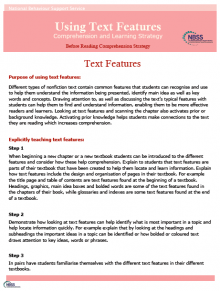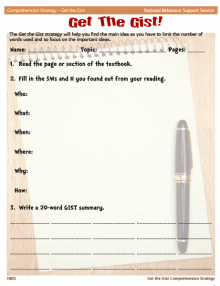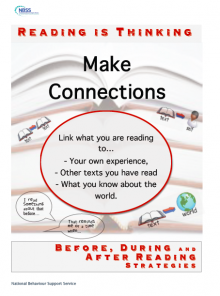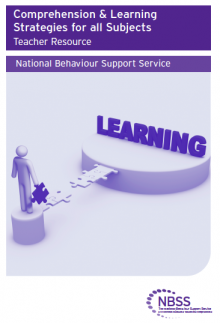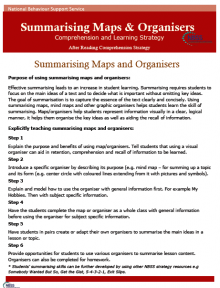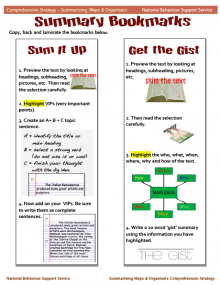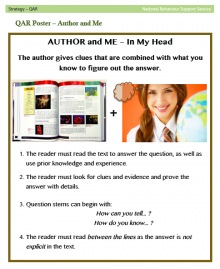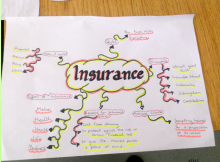OVERVIEW:
Common themes emerge from the research on Adolescent Literacy as to the most effective practices and strategies for addressing the literacy needs of all adolescent learners. There is a need for all subject teachers to integrate the explicit and direct teaching of vocabulary, comprehension and writing skills necessary for learning in their subject areas. By integrating these skills into their subject, teachers can enable students to read and write a wide range of texts, help them to become strategic thinkers and problem solvers and provide them with opportunities to apply reading and learning strategies in many different contexts.
'Disciplinary literacy is built on the premise that each subject area or discipline has a discourse community with its own language, texts, and ways of knowing, doing, and communicating within a discipline.' (O’Brien, Moje, & Stewart, 2001)
Informed by international best practice and research on Adolescent Literacy, the core of NBSS Level 1 academic literacy support is the explicit teaching of subject specific reading, learning and study skills and strategies. The NBSS support teachers to integrate these skills and strategies into all subjects, using a ‘before, during and after’ reading or learning framework. To support this work the NBSS has also published an extensive range of resources that can be used by teachers to help their students develop the specific skills required by their particular academic discipline. Additionally, the NBSS regularly provides in-service training to whole staffs, subject departments, working groups and individual teachers in the areas of reading, learning and academic skills development.
Following on from one such NBSS in-service in a partner school, six teachers of History and Geography agreed to explore the use of NBSS’ recommended reading and learning strategies in their classes.
QUALITATIVE FINDINGS:
The following extracts are from interviews conducted by the NBSS with five of the teachers who undertook the pilot. The sixth teacher was unable to attend the interview but provided written responses to the interview schedule.
Teacher A:
“…Yes, it’s nice to see students achieve and respond positively in Geography classes. Sense of success created for students. The NBSS literacy documents handed out at the meeting gave ideas for practical strategies to use with the group. This was most effective. It can be difficult to find multiple strategies applicable to topics so the resource books were helpful in giving ideas.”
Teacher C:
“…But what I found that was very interesting, what I hadn’t found before, was this idea of taking a guided tour of a chapter. I was fascinated with that … I have this textbook and you know you have the different reading ages and the different styles of textbooks… so how am I going to use this textbook with the students that I have? So I used a guided tour of the chapter…I would never have done that before. I used it to introduce, at the start of a topic, say the Middle Ages. I'd say 'Let’s look at what we are going to learn'. We would be kind of telling them what we are going to do. And I would say 'Let’s take a look'. And I would focus on the headings and I would ask them to call out what the headings are on this page and we would write them into our copies. 'What are the pictures on this page? What is that a picture of? We would have shared learning outcomes, a purpose for reading... Look at those words that are in bold print. A lot of students don’t realise why the words are in bold print. Why are there bigger headings? You know, the pictures aren’t for decoration, they have a purpose... Use all the things that are there. Which I wouldn’t have thought about before. Actually teaching them to use their books...
...And with History, we are always building up to research skills. And if they can't’t use the books... Like you have to teach a student. And I think we take that for granted that they know how to use their textbooks…" You have to teach students what the Contents Page is. And how they are going to find information… “Oh there is nothing in this book about what I am doing, Miss, there is nothing”. And I would say “Now slow down. When we scan a chapter, how do we do it? What are the headings? What is the heading about? And estimate will there be information in this section about what I am looking for?” Because I don’t think that they have the confidence to use books. It is not even reading skill but actually how to use a book. That was the biggest thing that I got out of it."
Teacher D:
“…I also looked at activating prior knowledge and making connections. So you know, we would find out what do they already know... we would write up everything we knew about it and we might categorise it as we said it…So you know they were delighted with the Vikings...in fact we decided that we really didn’t need to do the Vikings because they actually had enough prior knowledge about it…And they were delighted that they absolutely knew everything already. And anyway I think the Vikings are already done big time in primary school. But they were really chuffed with that.”
Teacher C:
“…I think we underestimate the importance of confidence in their learning. And actually getting them ready to learn. We just assume that when we open the book…and that is okay for some because they are programmed for that in primary school. But not everybody is. There is actually a bit of… take up time…And I have noticed that they can navigate a textbook better now that we have started all the little bits and bobs. They actually, if I give them questions they can actually go and find the answers. Whereas before they couldn’t at the start of the year.”
Teacher A:
“…I have a new awareness of literacy difficulties of students sitting in classrooms and from trying to use strategies specific to literacy I feel my own professional skills have developed…I would use a similar project next year. I kept it to one group this year and would expand this ... I teach in a more proactive and concrete way. I think I would work more on developing the initial literacy skills of students earlier in the year…”

